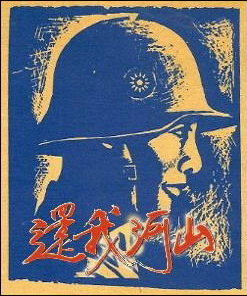China’s Low-Key VE-Day
- By Peter Harmsen
- 5 May, 2019
- No Comments
 Seventy-four years ago, World War Two in Europe ended. In China, which had been at war with Japan for nearly eight years, newspapers reported the European events at great length, but there was little jubilation, either among the public or the political elite. For even though Hitler was dead, his Japanese ally was still firmly in control of all the most prosperous parts of China along its eastern seaboard.
Seventy-four years ago, World War Two in Europe ended. In China, which had been at war with Japan for nearly eight years, newspapers reported the European events at great length, but there was little jubilation, either among the public or the political elite. For even though Hitler was dead, his Japanese ally was still firmly in control of all the most prosperous parts of China along its eastern seaboard.
The very best-case scenario was for victory over Japan in 1946, according to the consensus view. And that was only if the Western Allies could be persuaded to bring their entire military might to bear on the Japanese foe. Not all Chinese were convinced that war-weary peoples of the western democracies would agree to that.
China’s leader Chiang Kai-shek did his best to keep the western leaders to their promises of fighting Japan with the goal of achieving unconditional surrender.
“The defeat of Japan is inevitable. But there will be leaders promising the people that they will escape the bitter penalties of defeat if they fight on for twenty years more. The Japanese people must no be undeceived,” Chiang said in his official comment on the end of the war in Europe.
“Henceforth the Allies will be able to employ all their forces in smashing Japan. I appeal to our allies for such an effort. I promise on behalf of China that she will do everything in her power to discharge her share of the responsibility as a worthy ally.”
Little did Chiang know that the war would be over in little more than three months, after the United States unleashed the most terrifying weapon ever created over the cities of Hiroshima and Nagasaki, while the Soviet Union entered the war in the Far East with a massive armored assault in Manchuria. VJ-Day came faster than anyone had hoped.



 Copyright © 2024
Copyright © 2024
Leave a Reply